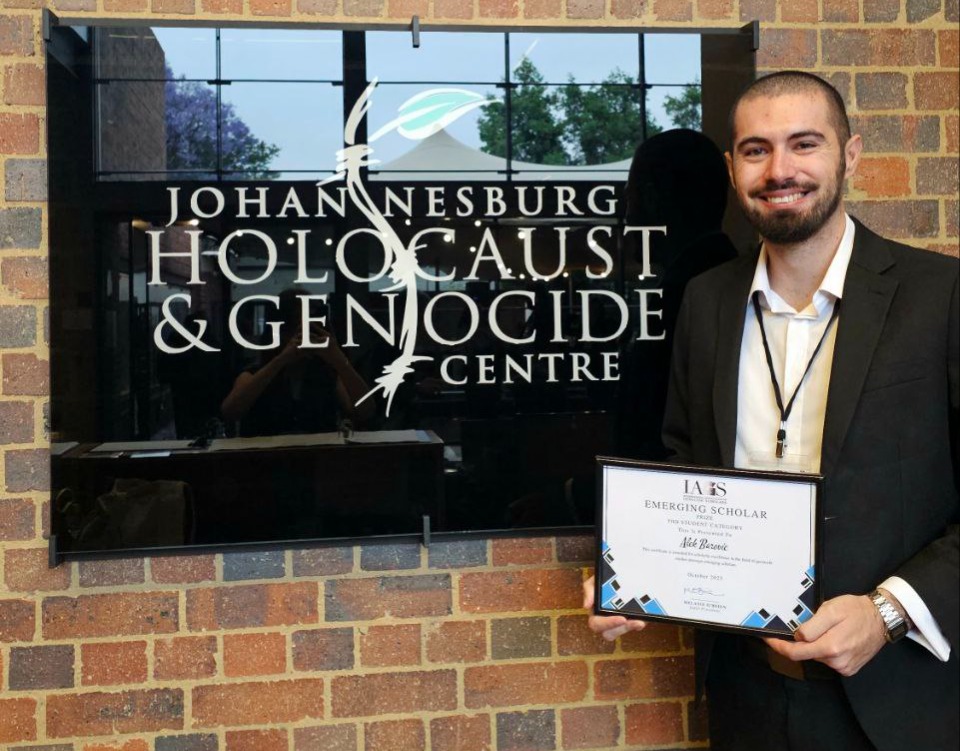Alex Barović, PhD candidate in "Human Rights, Society, and Multi-level Governance" at the Human Rights Centre is awarded the Scholars Award for Scholarly Excellence in genocide studies

Alek Barović, PhD candidate in "Human Rights, Society, and Multi-level Governance" at the Human Rights Centre, received the 2025 Scholars Award for Scholarly Excellence in genocide studies from the International Association of Genocide Scholars (IAGS). His studies center around “The Memorialization od Genocide: Between Politics, Religion and Nation-building”, analysing the way in which religion affects the construction of national identity and collective memory through the memorialization of genocide, with specific regards to Bosnia, Armenia and Iraqi Kurdistan.
Dr. Barović shares his thoughts on this important recognition:
«Attending this year’s IAGS Conference in South Africa was one of those moments that felt both humbling and energizing. Being recognized with the Emerging Scholar Award by the International Association of Genocide Scholars—a community I’ve deeply admired for years—was more than just an honor; it felt like a validation of the path I’ve been building through research, fieldwork, and dialogue. The conference itself was a space where voices from across the world came together, blending academic rigor with personal testimonies and moral urgency.
Presenting my paper on the role of the Islamic Community in preserving the memory of the Srebrenica genocide was especially meaningful in that context. Sharing how faith institutions contribute to maintaining collective memory and identity among Bosniaks allowed me to connect with scholars who work on similar intersections of religion, trauma, and post-genocide reconstruction—from Rwanda to Armenia. The discussions that followed my presentation were both challenging and deeply rewarding; they reminded me that academic exchange can also be a form of healing and solidarity.
Standing in Johannesburg, surrounded by people committed to understanding and preventing genocide, I felt a renewed sense of purpose. This recognition is not just a milestone, but a motivation to keep exploring how memory, belief, and resilience intertwine in societies marked by loss—and how those stories can still point toward hope.»

